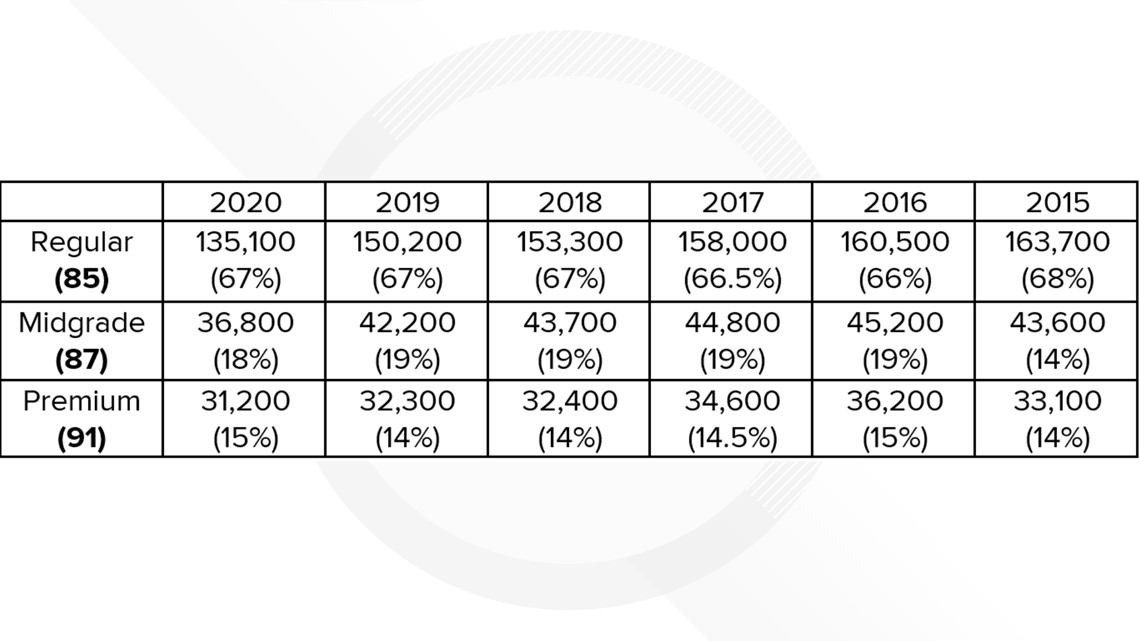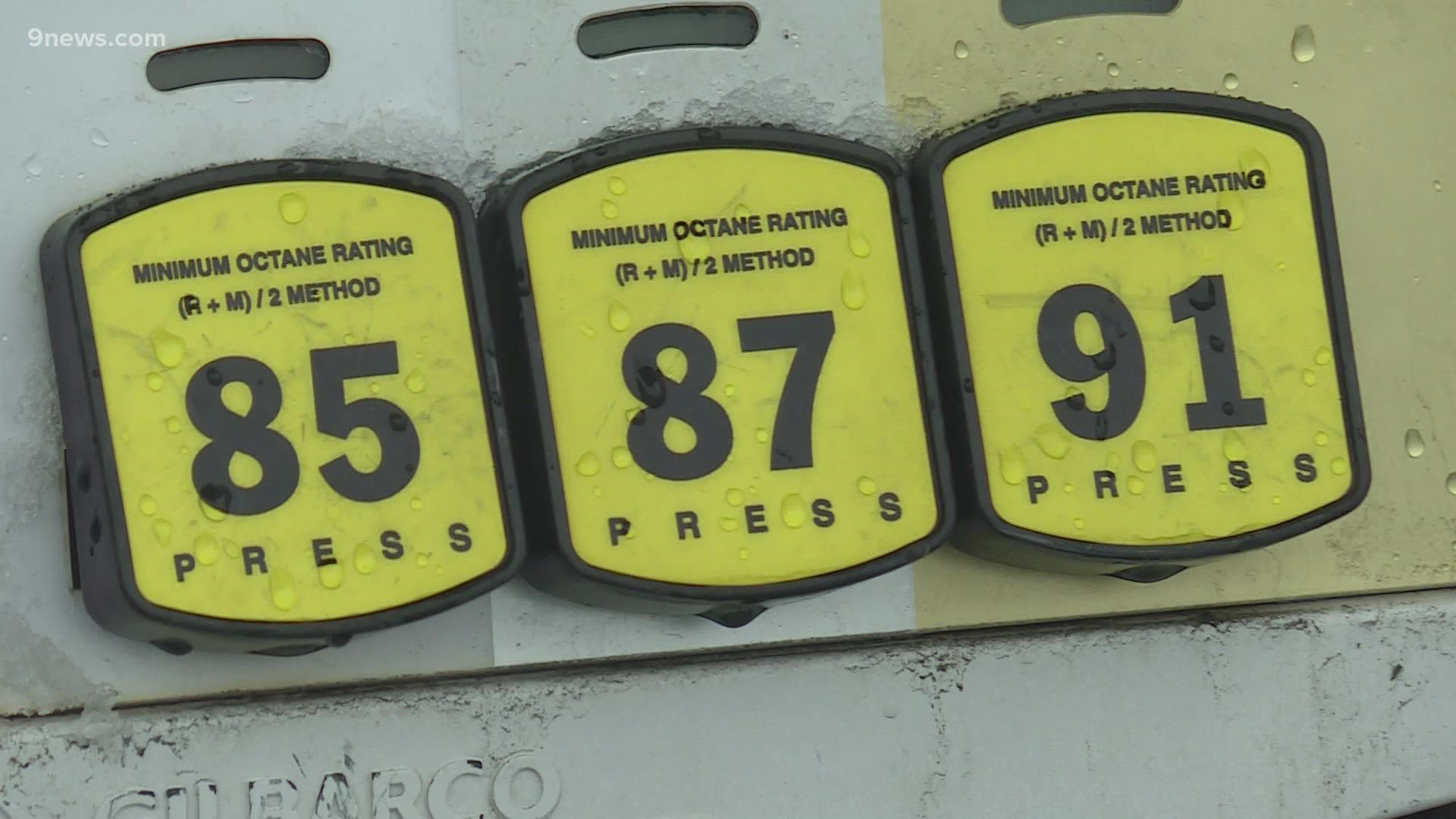DENVER — When you last filled up your car, do you remember how much it cost? You probably do because it was so high.
There is a good chunk of Colorado drivers who could save money right away by changing the type of gas they put in their cars.
Should you consider saving money with regular fuel instead of midgrade or premium?
"It all has to do with getting good engine performance," said John Jechura, professor of practice at the Colorado School of Mines Department of Chemical and Biological Engineering. "If your car is rated for regular, in my opinion, there's no reason to use premium."
Jechura knows the science about what the molecules are doing in an engine.
"As you move the piston up, the temperature goes up, along with the pressure. And it may be hot enough that the molecules start wanting to break apart and start burning on their own even before the spark. That's when you get back pressure. That's when you get pinging," said Jechura. "That's when you start having the fuel burning unlike it was designed by mechanical engineers."
And that is when you could hear a ping.
"Boy, if you have an engine that starts to ping, and you may have never experienced it, so you don't know if you would know? You'll know," said Jechura.
If that were to happen, you would want to move back up to the higher octane gas.
"In most modern engines, you may not know that you got the wrong octane because the computer in the engine is going to make up for that issue within the engine," said Scott Simmons, Colorado Division of Oil and Public Safety Inspection Supervisor.
The state sends inspectors to check out issues at the pump. Does the gas pump before the price starts moving? Is the octane button accurate?
"We actually take the samples from the dispensers and make sure that if it's 85, it's 85, if it's 87, it's 87, if it's 91, it's 91," said Simmons. "You can really trust, in general, what's on the button there at the gas station on the dispensers."
The state runs samples through equipment at a lab near 58th Avenue and Interstate 25.
"You can see the 'knock meter' here. If it fails on the knock meter that means that it is not the proper octane of fuel," said Simmons.
Expecting one type of gas to come out of the pump, but getting a different octane is rare.
And putting a higher octane fuel than your car requires is probably a waste of money.
"It's not like I put this in and now suddenly, I had a Yugo and it's going to start having engine performance and power like a Ferrari," said Jechura.
The U.S. Energy Information Administration tracks how many gallons of gas are pumped per day in Colorado.
In the most recent statistics from 2020, the results show what has been a constant in Colorado, two-thirds of drivers use regular (85) octane. It is a close split for the remaining drivers between midgrade (87) and premium (91).
Regular 85 octane is available in Colorado because of the altitude. In higher altitude areas, 85 acts like 87 octane fuel does at sea level.
U.S. Energy Information Administration - Colorado fuel sales (gallons per day)


The higher the octane, the higher the price because of what it takes to create the fuel type.
"When you want to have premium, then you need different types of molecules, so you have additional processing steps. Every time you have more processing steps, that adds processing costs, and to be passed along, it's going to be a higher amount," said Jechura. "I remember when I was younger and my hair was not quite this gray, it was about 20, 25 cents a gallon difference. Now, it's about 50, 60 cents a gallon, and it has to do with the additional processing."
SUGGESTED VIDEOS: Full Episodes of Next with Kyle Clark

